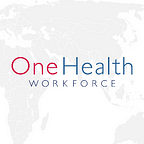One Health Innovations
One Health Seed Grant Recipients Announced
The One Health Workforce Seed Grant, funded by the USAID Emerging Pandemic Threats 2 One Health Workforce Project, aims to catalyze innovative training and education to foster a multi-sectoral workforce better able to meet the increasingly complex dilemmas at the convergence of animals, humans, plants, and the environment. Funds have spurred the creation of new public-private-academic partnerships, recognizing the synergy that comes from trans-disciplinary approaches bridging multiple sectors of society. Two proposals, one from each region, were chosen that addressed global One Health challenges and demonstrated new and innovative multi-sectoral collaborations for education and training.
Biosecurity and Biosafety Training on Priority Zoonoses in Tanzania
Dr. Robinson Hammerthon Mdegela and his team from Tanzania have been awarded a grant for their proposal In-Service Training for the Primary One Health Workforce on Biosecurity and Biosafety Related to Priority Zoonoses in the Kolosa Demonstration Site in Tanzania. The aim of this project is to enhance capacity of the primary One Health workforce in the Kilosa district by providing in-service training to tackle priority zoonotic diseases with an emphasis on biosecurity and biosafety during all stages of an emergency response. The project involves a multidisciplinary team including community health workers, field officers, wildlife rangers in Mikumi National Park; and traditional healers involved in management of human and animal health during outbreaks of zoonoses. Using evidence collected through focus group discussions, questionnaires and in-depth interviews, a One Health Training Workshop on Biosecurity and Biosafety for priority zoonoses for the primary One Health workforce will be organized to enable and strengthen trainees’ ability to efficiently prevent and control health risks associated with infectious zoonotic diseases. Additionally, Dr. Mdegela and his team aim to assess the regulatory environment around biorisk management to better address proper biosecurity and biosafety practices around priority zoonotic diseases.
One Health Problem-Based Learning in Malaysia
Dr. Intan Nur Fatiha Shafie and their team from Malaysia have been awarded a grant for their proposal Field simulation as an Approach for One Health Problem-Based Learning (PBL): Assessment on the Effective Learning in Comparison to Traditional Classroom PBL. This proposal demonstrates innovation in aiming to develop an integrated case module on rabies that can be applied through field simulation. The project is based on the One Health Problem-Based Learning approach. Field simulations will be carried out with groups of veterinary and medical students at a variety of checkpoints, which include a Health Clinic, Emergency Hospital, District Health Office, Department of Veterinary Services State Office, and the location of the Outbreak. At each checkpoint, the students will be involved in interviews, carcass handling demonstrations, sampling, and diagnostics followed by surveillance and control. Students will be integrating and applying relevant clinical knowledge based on the One Health approach to solve the case, while at the same time obtain professional experience working with multiple organizations.
